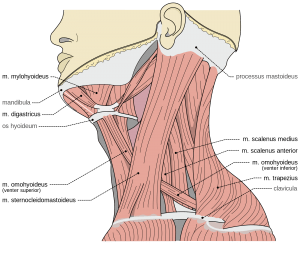If you are suffering from neck pain, specifically stiff neck; you might want to see your doctor as you could suffer from cervical degenerative disc disease. Experts believe this is the main cause for common neck symptoms. However, most patients who suffer from this condition are unaware. This type of disc disease is not as common as those affecting the lumbar spine area.
To address the issue of neck pain associated with cervical disc degeneration; it is important to learn more about this condition. You have to consult with a certified physician to ensure that the pain is indeed caused by cervical disc degeneration. And if it is determined to be caused by some other factors; you will be able to point out a treatment option so you can put an end to your neck pain problem.
Pain and Symptoms of Cervical Degenerative Disc Disease
There are two common symptoms that are commonly associated with cervical degenerative disc disease: stiffness of the neck and low grade neck pain. The extent of the neck pain could largely vary based on the extent of the disc problem. For some, the pain is mild and tolerable. But for others, it can be debilitating. However, patients who suffer from this condition complain of tingling pain; or numbness in the neck that could extend to the arms and shoulders. This happens when the cervical area is irritated or the nerves surrounding that area is pinched.
In some cases, you will also notice that those aforementioned parts of the body will experience some level of weakness. It is important to consult a doctor as soon as you notice any of these symptoms and experience pain. This condition could progress to spinal stenosis and other more serious condition.
Diagnosis for Cervical Degenerative Disc Disease
The key to curing cervical degenerative disc disease is to diagnose it. Especially during the early stages – before it progresses into a more serious condition. To begin diagnosis, the physician will conduct an interview to learn about your medical history; as well as gather information about the symptoms you have experienced. They will also conduct a physical test to determine how flexible your neck is. As part of the physical exam; the doctor will ask you to perform certain movements to determine if they cause pain or not.
If, in case, no definite diagnosis could be made with the physical exam conducted; the doctor will recommend undergoing further tests. The use of imaging tools such as X-ray, CT scan or MRI will probably be required. This is to determine if the images will indicate degeneration on your cervical area or spine. In addition, these tests will also reveal other conditions that could be causing you such pain; not just cervical disc degeneration.
The treatment approach for cervical degenerative disc disease is largely similar with lumbar spine problems. However, the diagnostic tests are a must to ensure that physicians can recommend the appropriate treatment approach. This will also help ensure that you do not cause more risks to your neck, spine, shoulders, back and other surrounding areas of the body.




 I love to write medical education books. My books are written for everyone in an easy to read and understandable style.
I love to write medical education books. My books are written for everyone in an easy to read and understandable style.